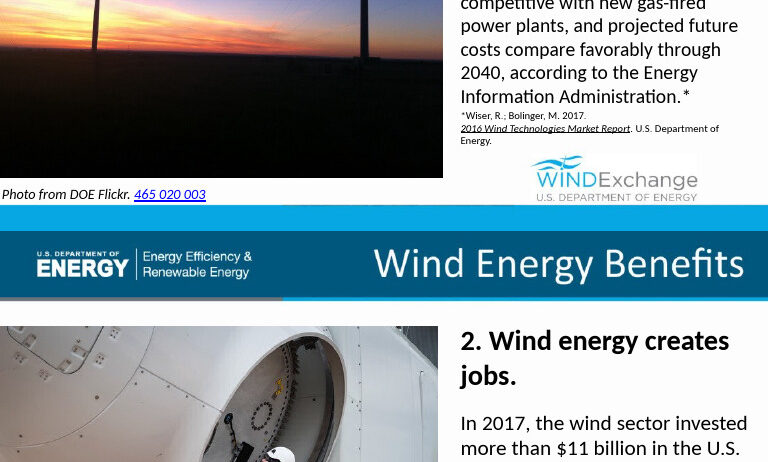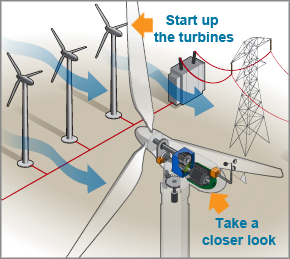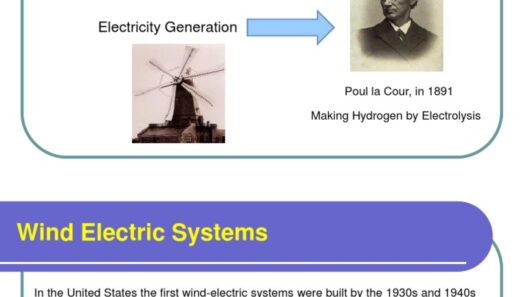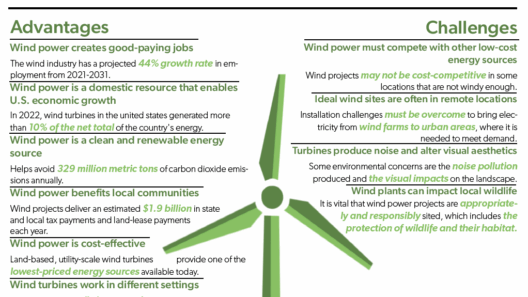In an era where environmental awareness is at an all-time high, the significance of renewable energy sources cannot be overstated. Among these sources, wind energy stands out as a beacon of promise for a sustainable future. As we delve into the myriad of benefits that wind power offers, it becomes abundantly clear why this clean energy source is pivotal in our quest to mitigate climate change and foster a healthier planet.
Wind energy, harnessed through turbines that convert kinetic energy from wind into electricity, offers a plethora of advantages. This article aims to explore the multifaceted benefits of wind energy, ranging from environmental sustainability to economic opportunities and energy independence.
Shifting the Paradigm: Environmental Benefits of Wind Energy
The most compelling argument for embracing wind energy lies in its ecological advantages. Reducing greenhouse gas emissions tops the list. Unlike fossil fuels, which release large quantities of carbon dioxide and other noxious pollutants, wind energy is inherently clean. A comprehensive transition to wind power could significantly diminish the carbon footprint, playing a crucial role in combatting global warming.
Moreover, wind energy conserves precious water resources. Traditional energy extraction methods, especially in fossil fuel extraction and processing, require vast amounts of water. In contrast, wind turbines use negligible water to operate, thus markedly lowering the strain on our already depleted freshwater reserves. In regions prone to drought, the implementation of wind power can yield significant ecological advantages.
A further consideration is the preservation of biodiversity. Wind farms have relatively small land footprints and can coexist harmoniously with agricultural practices. This dual use of land not only bolsters local economies but also reduces the need to convert natural habitats into industrial zones. Through this coexistence, wind energy promotes both wildlife conservation and sustainable agricultural practices.
The Economic Windfall: Job Creation and Growth Potential
Transitioning to wind energy is not solely an environmental imperative; it also presents robust economic opportunities. The renewable energy sector, particularly wind power, is burgeoning with potential for job creation. From manufacturing to installation and maintenance, the wind energy industry has already created hundreds of thousands of jobs worldwide, significantly contributing to local economies.
Furthermore, the installation of wind turbines stimulates growth in ancillary industries. Activities such as logistics, construction, and technical services see increased demand as wind energy projects come to fruition. This interconnected web of economic activity can revitalize struggling communities while providing ample job openings for skilled and unskilled labor alike.
Interestingly, wind energy projects tend to stimulate local tax revenues. Many communities benefit from tax incentives resulting from wind farm installations, with the funds often allocated to public services, such as schools and infrastructure. This compounded benefit supports a cycle of economic growth rooted in renewable energy.
Independence and Security: Enhancing Energy Autonomy
In a world increasingly susceptible to geopolitical tensions and fluctuations in fossil fuel markets, wind energy offers a pathway to energy independence. As countries invest in their wind power capabilities, they reduce reliance on volatile foreign oil markets and cultivate greater energy autonomy.
Wind power can also bolster energy security by diversifying the energy mix. As an inherently inexhaustible resource, wind energy provides stability and resilience against energy crises often precipitated by fossil fuel supply interruptions. By adopting wind energy systems, nations can safeguard their populations from the unpredictable nature of fossil fuel prices.
Additionally, integrating wind power into the energy grid can lead to lower electricity costs over time. As technology advances and production scales up, the costs associated with wind turbines have plummeted in recent years. This trend promises more affordable energy solutions for consumers, further incentivizing the shift toward renewable sources.
Innovative and Sustainable: The Future of Wind Energy
The technological advancements seen in wind energy are remarkable. Innovations such as larger, more efficient turbines and offshore wind farms pave the way for enhanced energy output while minimizing land use and environmental impact. Offshore installations, in particular, harness the more powerful and consistent winds found over the ocean, leading to higher efficiency rates compared to onshore facilities.
The integration of smart grid technology and energy storage systems also opens exciting avenues for optimizing wind power. These advancements enable better management of energy supply and demand, broadening the applicability of wind energy and ensuring that it meets the needs of consumers reliably.
Sustainability is not just a buzzword; it is a commitment to future generations. Wind energy exemplifies this commitment by offering a sustainable solution to pressing environmental challenges while nurturing economic growth and energy security. The transition towards wind power not only represents a necessary adaptation to our changing climate but serves as a transformative opportunity to reshape our relationship with energy.
In conclusion, the importance of wind energy extends well beyond its renewable nature. It is a vital instrument in our arsenal against climate change, an engine for economic growth, and a bastion of energy independence. Embracing wind energy signifies a collective commitment to a more sustainable, prosperous future for our planet and its inhabitants. The winds of change are blowing, and they beckon us to harness their potential for a better tomorrow.






